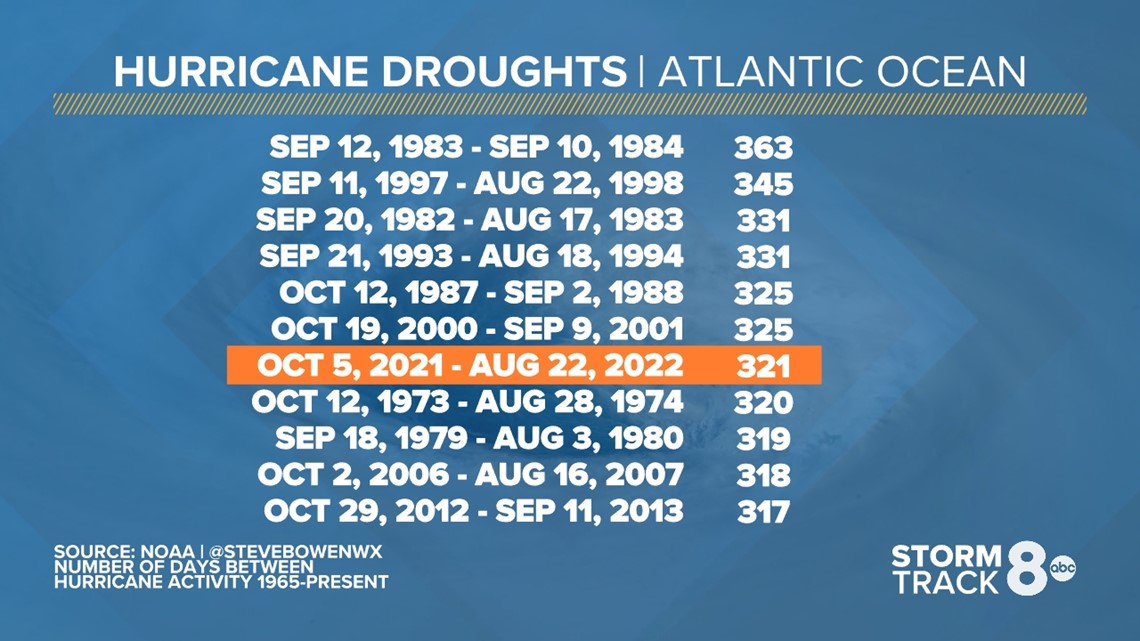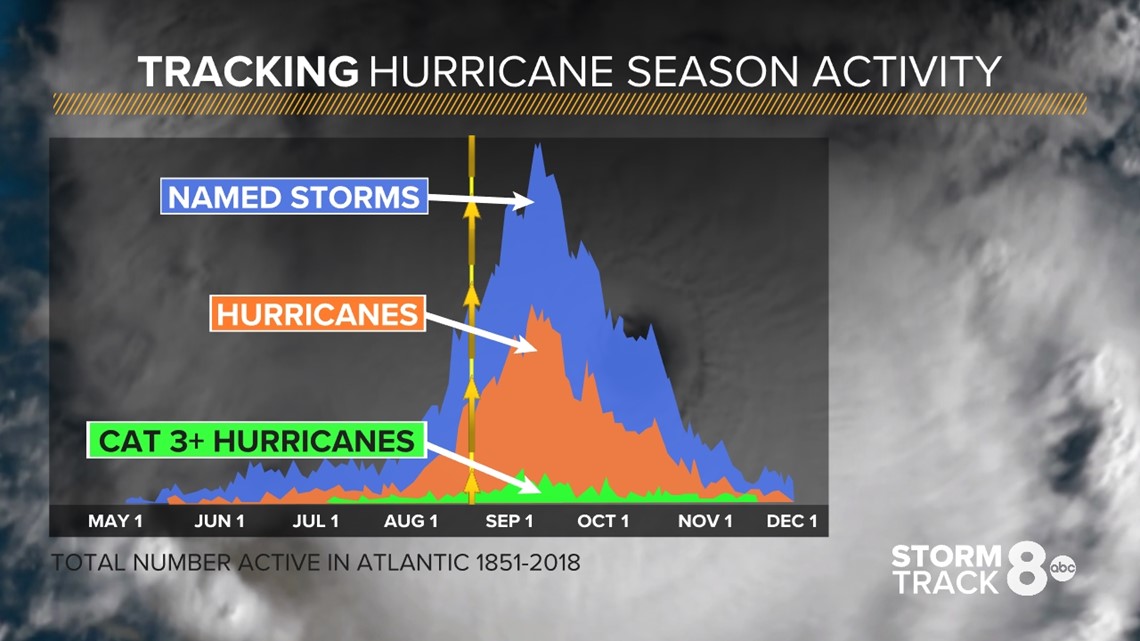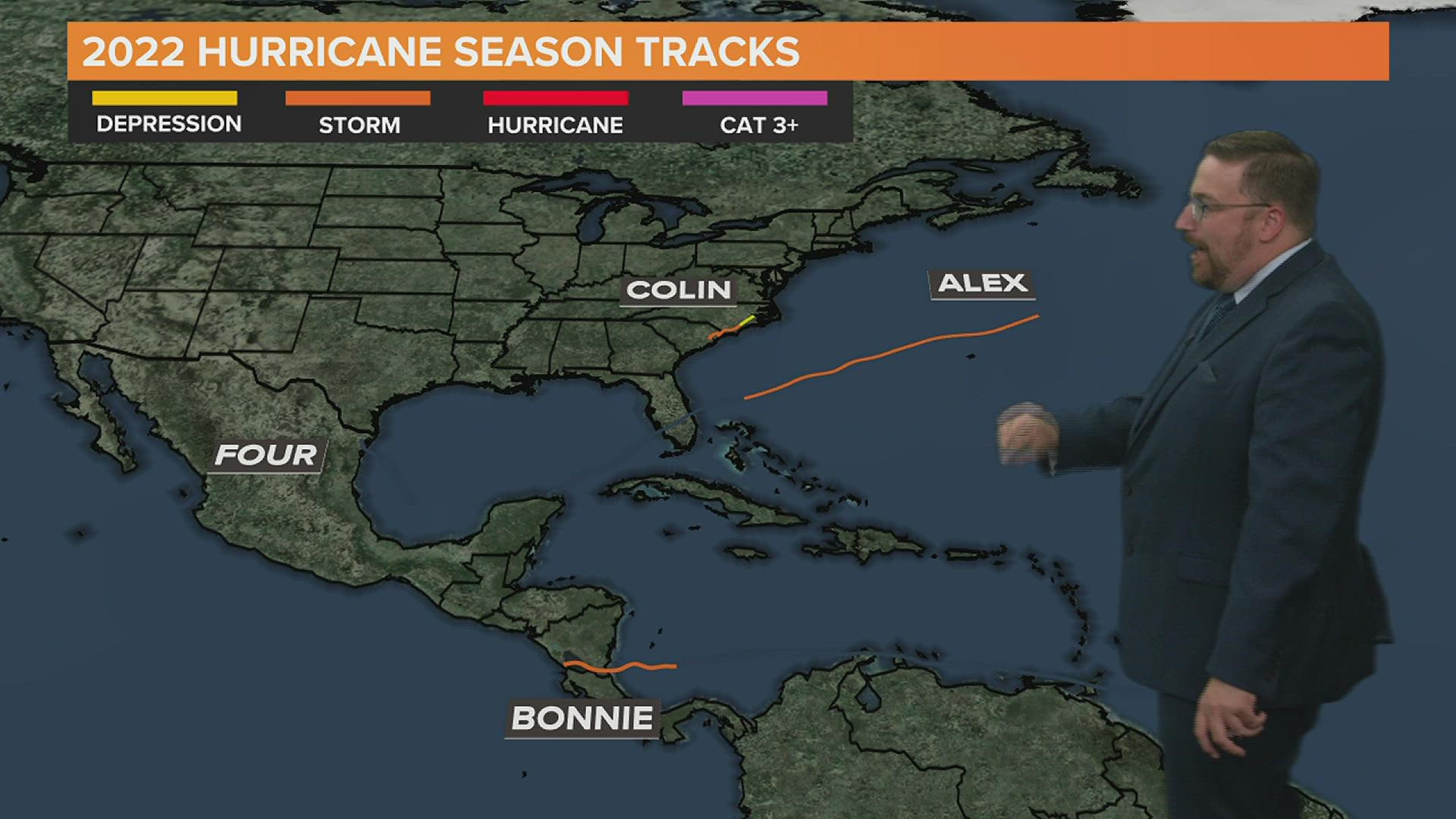MOLINE, Ill. — We've made it to the end of August without a single hurricane in the Atlantic Ocean. The last was Oct. 5, a whopping 321 days ago! This brought up a great question from Mary in Milan, Illinois: Why is the hurricane season, especially in the Atlantic, off to a slow start?
Let's dive in.
This stretch of quiet for the Atlantic basin has been extremely impressive. Not only is it the seventh-longest hurricane drought on record (since 1965 when weather satellites began observing the Atlantic Ocean), but this year has also landed as the third-largest gap between named systems.


The last named storm system, Tropical Storm Colin, formed in early July. That was 50 days ago. The biggest gap year was in 1999, with a total of 61 days with no activity between named storm systems.


While not record-breaking yet, it is impressive given the time of year. Climatology tells us, from mid-to-late August through September and October, we likely see quite an increase in the number of named storms, with many becoming hurricanes and a few gaining major-hurricane statuses.
By Aug. 22, on average the fourth named storm of the season should have formed, followed by the fifth on Aug. 29. So, why has it been so quiet lately?
There are a few things going on in the Atlantic Ocean this year. One is an increase in the amount of wind shear, which is the change in wind speed and or direction with increasing height from the ground. Second, large batches of dust from the Sahara desert, not atypical for this time of year, have also been found across the region along with plenty of dry air.
Other meteorologists have found a possible link to the extreme heat experienced in parts of Europe due to a sprawling area of high pressure. As we've talked about during Storm Track 8 University, high pressure is always associated with sinking air. It's not something you want to see when it comes to tropical storm development.
Should we go through the month of August with no named storms in the Atlantic, it will be only the third time in recorded history. Other years with no storm activity include 1961 and 1997.
It's also interesting to note that similar years that experienced big gaps in named storms also brought upon some violent storms later in the season, including 1999 which produced Hurricane Bret, Floyd and Lenny. The year 2001 saw Iris and Michelle, followed by Dean and Felix in 2007.
Have a question you would like me to answer for a future Ask Andrew segment? Submit it, here!

